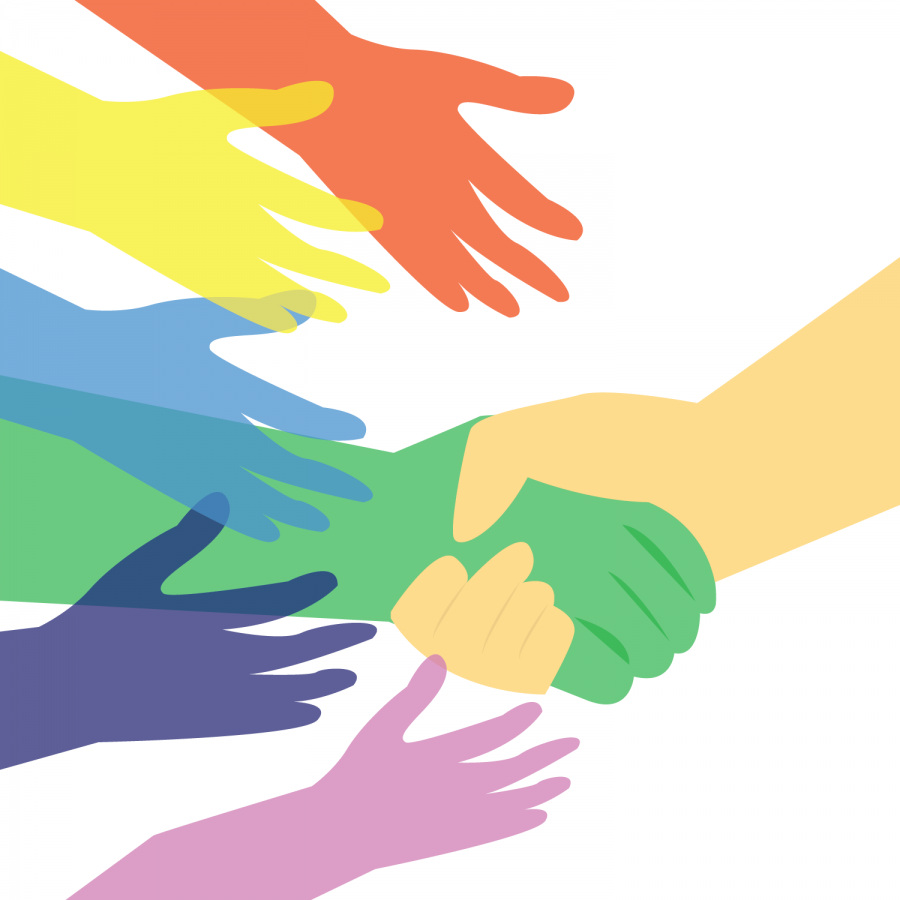Carle’s Life After Loss class comforts grieving
September 27, 2018
The Saturday of Oct. 13, 2012, is a date Jan Seeley, University alum, still remembers and always will. On that day, Joe Seeley, her husband, lost his battle with leukemia, which had been ongoing since January 2011.
Soon after his death, Jan was contacted by Carle Foundation Hospital’s hospice team, which had provided care for Joe during his final days. The team spoke to Seeley about joining a grief support group called Life After Loss, a place for the bereaved to connect with others who have experienced loss.
Carle’s Life After Loss is a structured eight-week class that is centered on a book by Alan Wolfelt, “Understanding Your Grief: Ten Essential Touchstones for Finding Hope and Healing Your Heart.” The class intends to educate participants on the grief process and learn how to overcome it so they can be healed, according to their website.
“It was an easy thing to say yes to,” Jan said. “Even though I knew how difficult it would be to actually go.”
She joined the group in January 2013 and recalls it as a very positive experience — one she still draws upon when times are tough.
Get The Daily Illini in your inbox!
After the eight weeks, Jan joined the follow-up group for Life After Loss graduates called Touchstones. She has been attending for five years now and plans to continue as long as the program is there.
Touchstones is a monthly, more traditional support group that allows members to openly share their adversities in a safe space. Jan credits the program with providing her solace.
“There’s nothing magical after one year from a loss, like all of a sudden you’re not grieving. That’s not true,” she said. “I have found it to be an ongoing part of my life. Grief is really hard work.”
Jan, who is a co-director of the Christie Clinic Illinois Marathon, added that while talking to friends and family members can help, there’s nothing like being with people who understand loss.
She has been working with Rita Manning, Carle Hospice’s bereavement coordinator, over the course of the support groups and is grateful for her support.
Manning has been the group leader for Life After Loss for seven years and utilizes her own experience of loss to help others. However, she still lets the members drive the discussion.
“Sometimes, society has a way of making us feel very alone,” Manning said. “But while in the group, I hear a lot of comments like, ‘It’s nice to know I’m not alone.’ Over time, there’s a sense of camaraderie that builds in a group that I just love to watch.”
That’s part of Manning’s purpose for the group meetings, in addition to resolving some misconceptions members may have about the grieving process.
She adds that acknowledging, accepting and sharing whatever one may be suffering through is a very important part of the recovery process.
Kimberly Harden, an oncology social worker at Carle, also stressed the benefits of support groups. She organizes numerous support groups for Carle that are open to all members of the community, while some are exclusively for those who’ve lost someone to cancer.
There’s a distinct upside to support groups as well, according to Harden; it provides members with an accepting space for sharing as well as receiving feedback and advice from those who’ve dealt with similar hardships.
“In traditional therapy, you could talk to a therapist who would listen and give suggestions, while (support groups) provide an opportunity to connect and share stories with others who’ve had similar experiences and can relate better,” she said.
Harden understands there may be anxiety relating to joining the groups, but encourages those suffering to try it out.
Kamau Grantham, assistant director of clinical services at the University’s Counseling Center, would agree. The Counseling Center currently offers 26 different process therapy groups — differing from support groups in their structure and goal — which help members with issues ranging from addiction, women’s issues, disorderly eating, trauma and anxiety.
The Counseling Center organizes therapy groups that have longevity and practical use, but availability is subject to student need and staff capability.
Therapy groups at the Counseling Center are usually led by two counselors, who have a passive, hands-off role and are there to provide structure and insight as needed.
While most groups have a similar structure, some are designed differently, he said. Grantham cited the model of the Shame Resilience group, which is based off Dr. Bréne’s Brown’s book, “I Thought It Was Just Me (But It Isn’t),” and deals with the painful effects of shame.
He added there’s also an Expressive Arts Group, which “uses art as a medium” to address personal issues.
For students considering group therapy, Grantham emphasizes the benefits it offers as a long-term option, especially for those who are socially anxious.
Every year, the Counseling Center receives anonymous feedback from students participating in groups and, Grantham said, it is overwhelmingly positive. A few benefits he cited from group therapy are an increase in self-esteem, relating better with other people, expressing feelings more clearly and getting feedback from peers.
The Counseling Center offers same-day appointments for first-time visitors; students can simply ask about joining a group if they’re interested, he said. Lines open at 7:50 a.m.
“A lot of people, when they hear group counseling, they get a little nervous,” Grantham said. “But once people try it and get the experience, they find it really helpful. If someone is nervous to try it, I’d say, a college counseling center is a good place to do it.”







